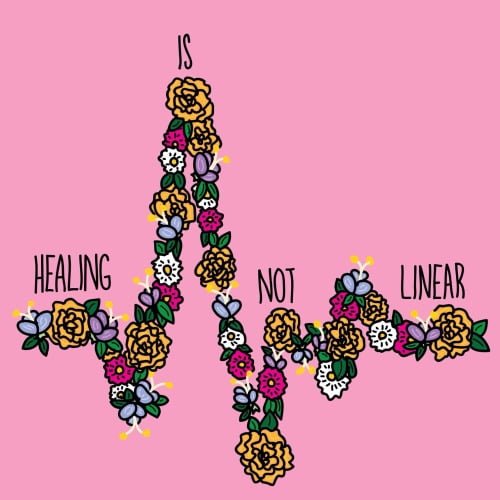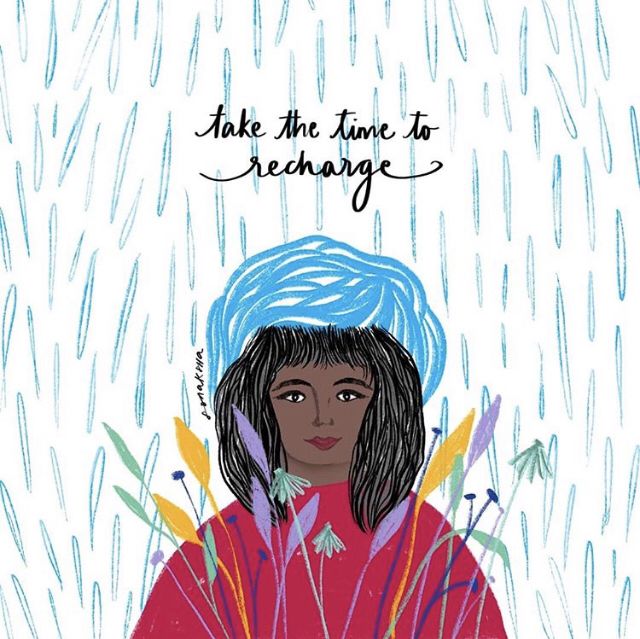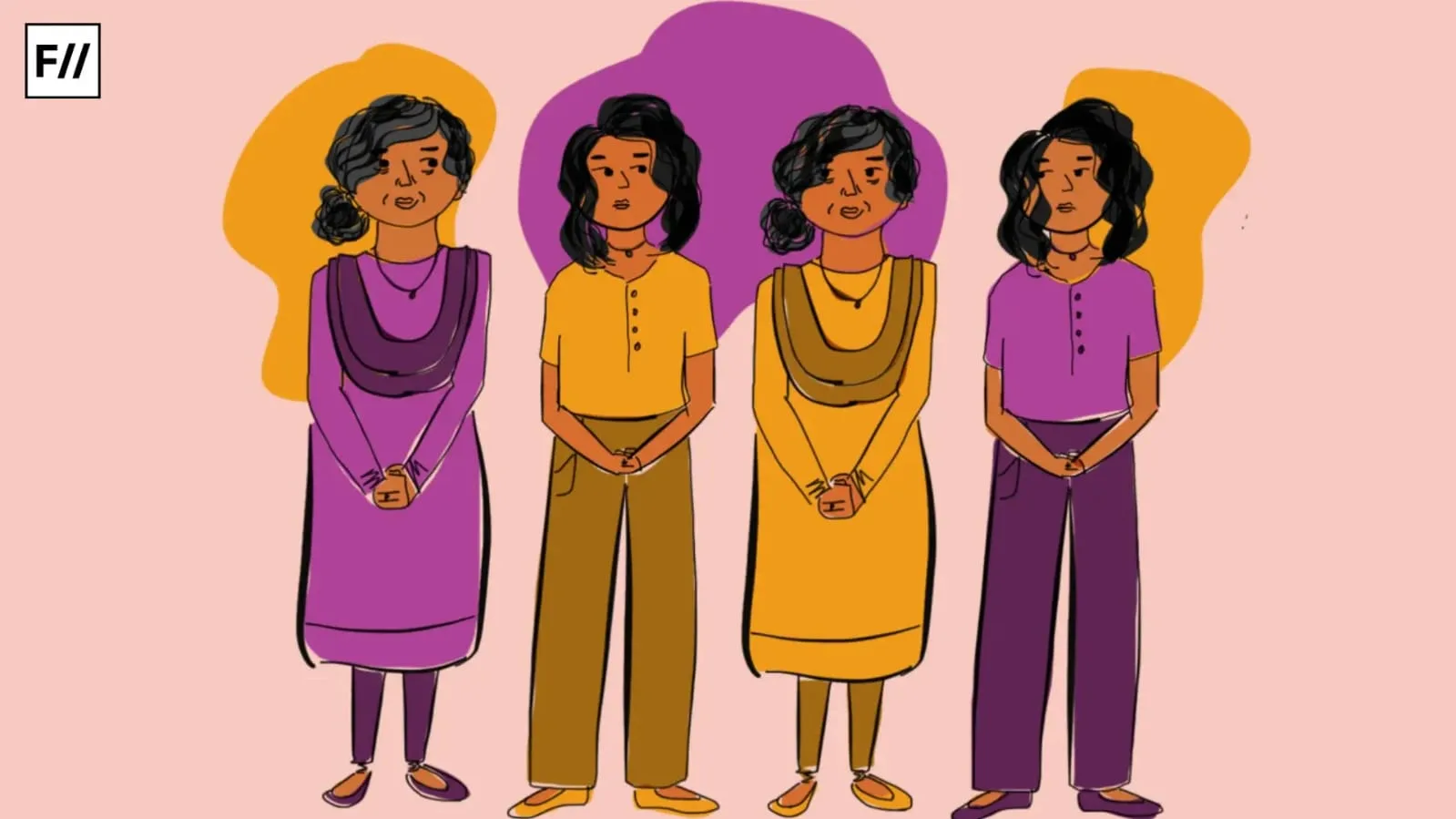We see a lot of articles and tips on how to be there for people who may be struggling with mental health concerns, the right words to say and things to absolutely avoid saying such as, “Stop overreacting!” or “Just be positive,” as if we haven’t desperately tried a thousand times already to rewire our brain into thinking that way. These conversations are extremely important and even necessary—being blamed for your own difficulties can be disheartening; it makes it difficult to open up to people, and can lead to a lot of self-ridicule which is a toxic tendency to have. Sometimes you just want to scream in frustration at the complete lack of empathy that people have towards mental health-related issues.
But I believe that a big part of the mental health conversation is missing:
What can people who are going through so much internally themselves do, to try and get better? Why don’t we talk about this enough?

It is a concern that both annoys me and also terrifies me to open up about. Many people are going to disagree with this and that’s fair—I am speaking from my own experiences and only hope to reach those who may be in a similar position that I was in. I was diagnosed with mixed anxiety and depression and it took me a while to come to terms with a few things before I felt resolved to do something about my mental health myself as well. This is just a personal opinion piece on why I think we should have more conversations about the agency of the person who themselves are going through a difficult time.
When we only debate about how others should be more sensitive, more careful, without talking about our own role in our recovery, we might forget that we have some power in deciding the route our mental health takes. We may start to believe, as I did, that things won’t work out for us as long as there are disturbances in our environment. Personally, I started placing a lot of blame on my environment: my academic stressors, people who judged me for being on medication and my uncertainty about my future.
Before I begin this article, I’d just like to reiterate that by no means do I intend to discredit conversations that emphasise how others should be dealing with loved ones with mental illness—those are extremely important in a world where this topic is still so widely stigmatised or considered a trivial issue. We need to cultivate a culture where the conversation goes beyond a useless “Suck it up!” and a pat on the back. Neglect and lack of consideration can actively harm a person’s mental health. This is merely another aspect that I wish to introduce to the general conversation.
- Not talking about our own agency can be harmful
When we only debate about how others should be more sensitive, more careful, without talking about our own role in our recovery, we might forget that we have some power in deciding the route our mental health takes. We may start to believe, as I did, that things won’t work out for us as long as there are disturbances in our environment. Personally, I started placing a lot of blame on my environment: my academic stressors, people who judged me for being on medication and my uncertainty about my future. I was filled to the brim with resentment and anger. I kept thinking, “You are the reason I am not able to get better!”
The thing is, it didn’t matter whether my thought process was right or wrong, because all it was for sure, was unproductive. Feeling helpless against our circumstances can seriously affect the speed at which we make progress, if we make any progress at all. It is useful to be reminded that our environment is not the only thing that determines whether or not we get better. It is useful to know that despite everything else we still retain some amount of control, however minuscule it may seem. It can be empowering to stop viewing negative circumstances as happening to us, and see ourselves as the protagonist in our story of self-improvement.

- The point is not to blame yourself for your mental health
While external factors such as our privilege, accessibility to mental healthcare services, and social support definitely play a major role in deciding the state of our mental health, we must realise that there are still a few (yet significant) changes that we can make in our lives.
I used to feel extremely offended when this kind of conversation would come up. Surely, no one actually believes I am willingly suffering or getting comfortable with this horrible mental state I was in? I used to view it as others putting the onus of my own struggles on me. But it took me some time to realise that that’s not the point at all. It was never to blame ourselves for what we are going through but to reclaim some power in deciding where we go, now that we are here, in this extremely inconvenient and often painful situation.
It was never to exacerbate negative self-talk and start believing that we created problems for ourselves, but more to acknowledge, “These are my problems. What can I do to ease things for myself, even if my circumstance is making it hard for me?” We can just never be sure that circumstances will ever be 100 percent conducive to healing. It’s not just that we shouldn’t be completely dependent on them to get better, it’s that we literally cannot afford to.
Also read: Conversations With A Therapist On Mental Health During Lockdown
- People have no incentive to be more sensitive to you
This is a tough one. But it is rare to feel fully understood when we explain how we feel. It is difficult to feel satisfied with the response we get from the most well-meaning, loved ones. I was extremely fortunate to have the most understanding and caring social support by my side. But being unhappy on the inside stopped me from believing them. To an extent, we are right—no person can completely know how we feel just as we can never totally comprehend how they would feel in a difficult situation.
I had the privilege of having an endless supply of compassion even when I was at my most volatile phase, and yet I had to reach a point of absolute exhaustion with my own feelings to decide to take charge of how I feel. Other people can easily make it harder for us to feel better if they are rude or apathetic, but they can seldom make us feel significantly better unless we choose to believe them. It was perhaps easier for me than it can be for others to make that choice. But at the very least, it’s important to remember that when we finally feel up to it, that choice still exists.
I had the privilege of having an endless supply of compassion even when I was at my most volatile phase, and yet I had to reach a point of absolute exhaustion with my own feelings to decide to take charge of how I feel. Other people can easily make it harder for us to feel better if they are rude or apathetic, but they can seldom make us feel significantly better unless we choose to believe them.
- We have heard of most “solutions” before
It can be so frustrating to listen over and over to the broken record of “Exercise! Meditate! Hydrate!” Mental illness has a lot to do with our mindset and negative thinking patterns, both of which have immense power over our emotions and general well-being. Common suggestions such as these—well, we’re tired of hearing them. We’ve tried them and they haven’t worked. Now what?
I personally do not know if there is some sort of magical solution to escaping mental health concerns. The journey is painstakingly slow, and progress is difficult to recognise even over a period of weeks, months, maybe even years for many. Whether or not these are “cures”, incorporating them into my lifestyle has genuinely helped me, and I am only able to see this now 2 years after my diagnosis. I think it might help to accept that change can be annoyingly gradual and exhausting. It might help to know that even when we spiral (not again!), that could very much be a part of getting better.

We have to maintain some lifestyle changes like eating well, getting enough hours of sleep, forcing in 20 minutes of exercise into a busy schedule, for them to make a difference—even if it comes at a glacial pace. I used to feel livid when someone would suggest these to me—my problems were far too complex to be healed by a few extra glasses of water and spiritual voodoo like “practising mindfulness! <3”. But these are the only things that get any credit for making a sustained impact in my life too. They may not be quick fixes but they’re also probably not damaging. Maybe we should just see it as a long, long road to recovery as opposed to a fantastic escape we made out of a desperation to get out of our own head. It’s an imperfect journey sprinkled with disappointments but it’s important that we’re at least getting farther ahead.
Also read: Normalizing Postpartum Depression: Mental Health For New Mothers
And here, before I end my article, I want to acknowledge that many are in much worse circumstances than I was in, and can experience mental illness in varying degrees, making it harder to incorporate the points I have mentioned above. It pains me to think that someone who may indeed be in a position to help themselves might truly believe that they have no say whatsoever in their own betterment and well-being, all because we paid no attention to our agency within mental illness. I wish that whoever it helps can benefit from it before being burnt out or completely devoid of hope in their ability to overcome what can seem like a monumental barrier to their happiness.
Featured Image Source: GenderIT
About the author(s)
Manasi is a Gender & Sexuality campaigner at Jhatkaa.org. She is the former Digital Editor at Feminism in India and a researcher in the field of women and work. She hopes to keep learning and unlearning about feminism and intersectionality, and to create meaningful impact through her work.




